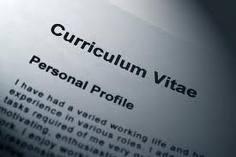What is a good CV?
Only a CV that gains you an interview is worth having.
Your CV may look great; have a fantastic image and all the relevant sections. The CV may also tell an employer how amazing and wonderful you are, but if your CV does not gain you interviews then something needs changing.
Sell yourself through your CV
With many people who are applying for work, they will either have a CV that does not sell their skills and Qualities or a CV that records the skills and qualities they have, which are not relevant to the job role they are applying for.
Targeted CV
You need to target your CV to the industry you are applying for. To do this think about the skills, qualities and duties for the job role you are applying for. Read the job specification for the job role and ensure all the essential requirements are recorded on your CV. Take out any information that is not relevant to the job you are applying for. On average employers often “skim” through the pile of applicants’ CVs, spending around 30 seconds reading each CV; this is often due to the large volume of CVs applicants send for every advertised job. Once an employer has created a narrowed-down pile of the job applicants CVs, they will then spend longer dissecting each CV to ensure they interview the candidates with the most relevant skills, qualifications and experiences.
Writing a Personal Profile
A personal profile is on average 4-5 lines describing all your skills and qualities that are relevant to the job role you are applying for. This should be a “Selling” paragraph that shows you at your best. Often the employer will read the personal profile first, if they like the sound of you they will continue to read your CV.
Use a powerful opening line; the opening line needs to catch the employer’s attention. What have you done that will impress an employer? What do you have that an employer will want? “With over 10 years of experience in retail management working with the UK’s leading retail companies, I have been responsible for increasing profits year on year for the past 6 years.” As you can see the opening line above highlights 3 key points to impress an employer:
10 years experience
Working with the UKs leading retail companies
Increasing the companies profits
How to create ideas for your Personal Profile
A great way to get your creative juices working is to mind-map; get an A4 piece of paper and draw a little picture of yourself in the middle (this can be a Stick-Person) draw on some hair, eyes, glasses, etc to represent you, like you would do when you were 10 yrs old (this is to get into the mind of your inner-child and will help you to be more creative) Think and write down everything you like about yourself, everything you are good at.
Most people find this hard to do at first, but once you get going you want to be able to stop. Don’t be shy; no one is going to see this, write down every little thing, not just worked related but anything you are good at. You may have recorded a verity of work, hobbies and family related task, now think what skills and qualities that make you good at this task? And record all of these.
Keeping going until you have exhausted your brain. As an example – Cooking – good timing, multi-tasking, planning ahead, following a list/recipe, work under pressure, experienced, good pallet, etc
Once you have done this, your mind-map will be full (and hopefully overcrowded) with task, skills and qualities. Now think about the industry you are applying to, think about the job duties, skills and qualities needed.
Circle (in a bright coloured pen) all the tasks, skills and qualities you have on your mind map that are related to your job goal. You will find that often a certain skill or quality will have been mentioned several times throughout your mind-map, write these down as these can often be your strongest transferable skill and quality (your selling point)
You now have a list of your strongest skills and qualities that are needed for the job you are applying for, this is the basis for your personal profile. Turn your list into a paragraph, adding a strong opening line. Re-read and then edit your personal profile 3 times/or until you are completely happy with your personal profile.


